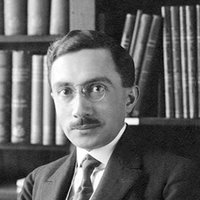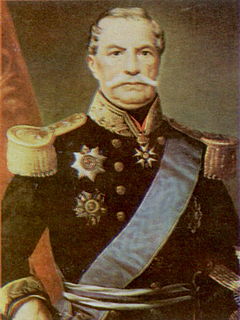Paraskevopoulos (Greek : Παρασκευόπουλος, "son of Paraskevas") is a Greek surname with the feminine form being Paraskevopoulou (Παρασκευοπούλου). It is the surname of:

Greek is an independent branch of the Indo-European family of languages, native to Greece, Cyprus and other parts of the Eastern Mediterranean and the Black Sea. It has the longest documented history of any living Indo-European language, spanning more than 3000 years of written records. Its writing system has been the Greek alphabet for the major part of its history; other systems, such as Linear B and the Cypriot syllabary, were used previously. The alphabet arose from the Phoenician script and was in turn the basis of the Latin, Cyrillic, Armenian, Coptic, Gothic, and many other writing systems.
Paraskevas is a Greek surname. It is the surname of:
- Georgios Paraskevopoulos, Greek cyclist
- Ioannis Paraskevopoulos (1900–1984), Greek banker and interim Prime Minister of Greece
- John S. Paraskevopoulos (1889–1961), Greek–South African astronomer
- Leonidas Paraskevopoulos (1860–1936), Greek general and politician
- Nikos Paraskevopoulos, Greek criminologist and Minister of Justice.
- Panagiotis Paraskevopoulos (1875–1956), Greek athlete
- Zoi Paraskevopoulou, Greek archer
Georgios Paraskevopoulos was a Greek cyclist. He participated in the 1896 Summer Olympics in Athens.
Ioannis Paraskevopoulos (1900–1984), was a Greek banker and politician who served twice as interim Prime Minister of Greece during the 1960s. He was born in Lavda, Elis.

John Stefanos Paraskevopoulos also known as John Paras, was a Greek/South African astronomer. He was born in Piraeus, Greece and graduated from the University of Athens, where he obtained his PhD in Physics in 1910, under the supervision of Timoleon A. Argyropoulos. He served in the Greek army during the Balkan Wars and World War I. He work as an assistant of Prof. Demetrios Eginitis at the National Observatory of Athens, and in 1919, he went to the US with a two-year fellowship, spending part of that time working at Yerkes Observatory. There he met and married Dorothy W. Block. In 1921, he returned to Athens where he became head of the astronomy department of the National Observatory of Athens with a goal to built a large telescope in Greece. However, due to the war between Greece and Turkey during that period and the political instability that followed it soon became evident that the large telescope for the observatory would not materialise. So, in September 1923 Dr Paras accepted an offer from Dr Harlow Shapley, to become the Superintendent of the Harvard Observatory's Southern Station. He left this post due to a lack of funding and went to Arequipa, Peru to work at Boyden Station, a branch of Harvard Observatory, with a view to finding a more suitable location for it. The decision was made to move Boyden Station to South Africa due to better weather conditions, and Paraskevopoulos served there as director of Boyden Observatory in South Africa from 1927 to 1951. He co-discovered a couple of comets. The crater Paraskevopoulos on the Moon is named after him.








